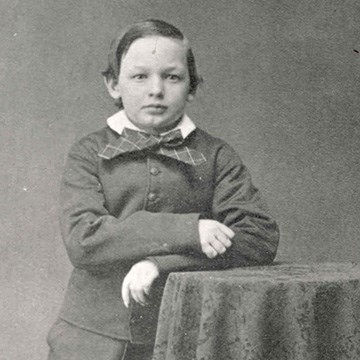Lincoln's Success at Gettysburg and Vicksburg
- John O’Brien

- Jul 16, 2023
- 2 min read
By John A. O'Brien
Denver, Colorado
Saturday, July 15, 2023
Lincoln marked the Union successes at Gettysburg and Vicksburg on this date 160 years ago with a “Proclamation of Thanksgiving.” The victories were important and timely, but the proclamation masked Lincoln’s anxiety for the lack of decisive follow through at Gettysburg. He had personally invested a great amount of time working to assure that the two commanders could be successful. During this week, he wrote two letters. The first he sent to congratulate Gen. Grant: “I never had any faith, except a general hope that you knew better than I… [but] you were right, and I was wrong.” The second letter expressed his disappointment to Gen. Meade: “I do not believe you appreciate the magnitude of the misfortune involved in Lee’s escape. He was within your easy grasp, and to have closed upon him would … have ended the war.” The second letter was never sent.

John Hay recorded that Lincoln was in “especially good humor” on July 11, when the president received Meade’s telegram that he would attack Lee on the banks of the Potomac the next day. But three days later Lincoln learned that Lee’s army had successfully crossed the river without the promised battle. Secretary Welles reported finding Lincoln stretched out on a sofa in the War Department, “dejected and discouraged.”
Lincoln was frustrated with his eastern commander because so much had been done to facilitate his success. Though Meade had been put in command just two days before the battle, Lincoln had shepherded the movements of his predecessor, Joe Hooker. Lincoln kept Hooker from dispersing the army and concentrated his movements to intercept the Confederates as they entered Pennsylvania. Hooker had been several steps behind Lee from the moment he left Chancellorsville. As Lee was moving north, a confused Hooker wanted to attack Richmond. “Lee’s army, and not Richmond, is your objective,” Lincoln chided. At Gettysburg, Meade had the troops he needed at the point of contact and the total support of the government.
The planning to take Vicksburg had been much more extensive, starting more than a year before the surrender. Lincoln identified the importance of that fortress city to being able to control the Mississippi River and split the Confederacy. He personally expedited construction of the river gunboats and mortars necessary for the effort. After a false start, Lincoln solidified political and military support around Grant. And he allowed Grant to countermand several distracting movements in order to concentrate the forces for his audacious plan.
Both of these campaigns made Lincoln a better commander in chief. They provided him with the insight to realize that Grant was the one man who shared Lincoln’s view of the “hard war,” necessary for victory and with the wisdom to win it. Lincoln made sure that the soldiers who fought and the commanders who led them were honored, but the president himself had earned his laurels for having matured into the war leader the nation needed to prevail.




Comments